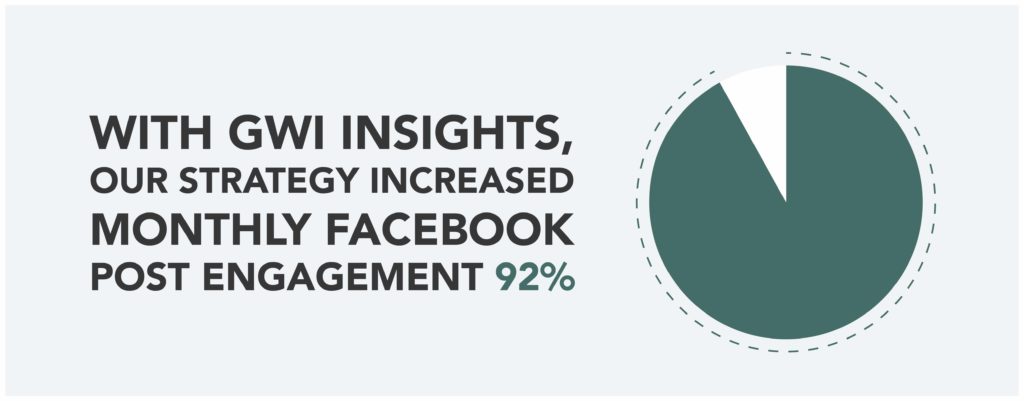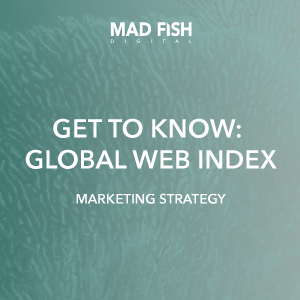Marketing is a moving target. How do you identify your audience, understand their needs, and connect with them in a memorable way without stepping too far or violating their privacy?
Data protection laws like General Data Protection Regulations (GDPR) and the California Consumer Privacy Act (CCPA) increasingly protect consumers’ personal information as they travel around the web. These laws also put the responsibility on businesses to be forthcoming with how they collect and use customer data. So, how do you do ethical audience research and craft tailored campaigns to reach your different audiences?
The Importance of Audience Research
Research is an early step in creating a successful marketing campaign. Understanding your target audience’s wants, needs, and motivations, as well as how and where to connect with them are all important factors that impact your overall digital marketing strategy. With the rise of social media, market research methods have expanded and in many ways are easier than ever before. But, these platforms and laws, like GDPR, change the ways marketers gather information about potential audiences. Because of this, so does our responsibility to ensure our approach is ethical and unbiased.
What Is Ethical Marketing Research?
Ethical marketing research is when marketing teams use moral principles to guide the collection and analysis of research. With principles to follow, the researchers can ensure accuracy and authenticity without bias.
At every step of a market research effort, a company conducting market research should take measures to ensure participants and clients are treated fairly and respectfully. Ethics plays an important role in building trust within relationships – especially for marketers and consumers. For digital marketers, market research ethics should be incorporated throughout the process of collecting and reviewing data. This ensures respect, honesty, and privacy are always present. A great place to start is to have a clear code of ethics. These principles can be a guide for structuring marketing research processes.
How to Remove Market Research Bias
Market research bias also plays a role in ethical audience research. When researching the communities we market to, it’s important to be aware of our biases. Marketers must go beyond assumptions and use market research to build inclusive content and strategies. Evaluating the way we build audience personas, frame research, and the questions we ask are important steps in creating inclusive and successful campaigns. We also have our research reviewed by another individual to help us identify any potential biases.
Marketing Research Tools
When GDPR and CCPA were introduced, many companies and tools had to adjust their strategies and operations to ensure they operated ethically under these new regulations. When looking at potential audience research tools to use it’s important to check that their processes follow these regulations, that they clearly and visibility state how they use collected data, and that they also align with your own code of ethics.
For Mad Fish Digital, there are many methods and tools our team utilizes when conducting audience research, but one of the primary tools is Global Web Index.
Global Web Index
GWI is a market research tool that employs custom audiences layered with market research to provide insights into consumer insights and behavior. This tool is continuously updated with new data and research. Our team uses this trend data to inform, create, and update new and existing marketing strategies.
We use GWI to build out customer personas. The identifiers we use are many but often include:
- Demographics
- Social Media Use
- Purchase behaviors
- Consumer Influences & Behaviors
Once we build personas, we can apply them to GWI dashboards and reports. This helps us better understand our audience and how to connect with them. A few of the applications our content strategists use include:
- Platform Insights: These help us determine which channels drive decisions with target audiences.
- Audience Insights: These help us better understand our personas’ worlds beyond job title, income, and basic demographics.
- Messaging Insights: These help us learn more about the brands that resonate with them and what kinds of messaging they might respond to.
GWI allows us to reduce bias in the audiences we create and create more personalized marketing campaigns. As GWI puts it, “Using the results of our research, we help our clients to understand the anonymized characteristics and demographics of the people who visit their sites, use their products and services or see their advertising.”
An Ethical Marketing Research Case Study
The Pacific Yurts team needed data to support and expand knowledge around their social audience. They were curious about how they could stay competitive with likes and engagement on Facebook and Instagram in particular.

Using GWI data, we were able to identify the kinds of content interesting to their customers. Additionally, we were able to sort out which websites and platforms customers were using and where they were discovering products and brands. This data helped our team build a strategy that increased monthly Facebook post engagement +92%. It also grew Pacific Yurts Instagram audience by +17% year-over-year.
Other Research Tools
Along with GWI, other tools our team uses to find insights and ideas include:
- Quora: This free site is an online question-and-answer platform. The power of this tool is that you can search for terms and general topics and see what questions your audience is asking.
- Google Trends: This free service shows trends in search activity all over the world. With access to maps, charts, and other tools.
- Answer the Public: Fetches and maps keyword suggestions/predictions that you see when you perform a Google search. Enter a keyword in Answer the Public and you’ll be presented with questions, prepositions, and alphabetical lists related to your query.
Building Lasting Connections
In today’s digital world, information on consumers is just a search away. How we communicate, interact, and connect as marketers and as people is important. We want to ensure respect, honesty, and privacy are always present. When that happens, we create more inclusive, positive, and successful messages from start to finish.
Learn more about Mad Fish’s code of ethics, and how our team can help you build more tailored marketing campaigns.


